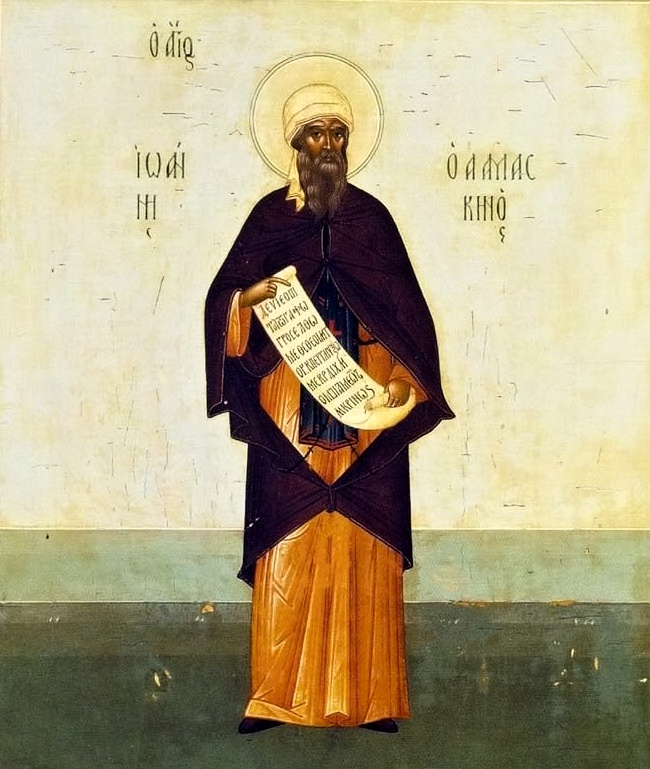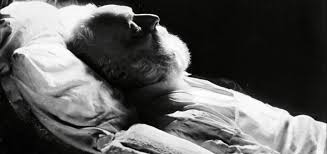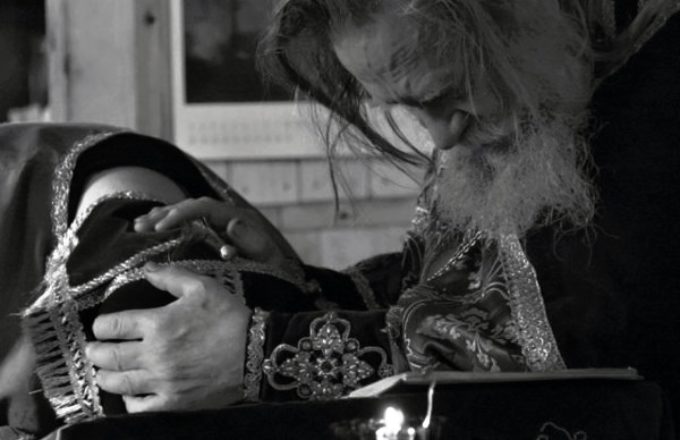- What significance has the prayer on the knees, the prostrations face down to earth, the crossing of hands on the chest or the raising of the arms in the air metanies and many others?
By kneeling for prayer we confess our piety, repentance and helplessness before God. The prostration face down to earth expresses our humbleness before God. Judith prayed with her face down to earth before going in the camp of the enemies (Judith 9,1) this is how the Savior prayed in the Garden of Olives (Matthew 26,39), this is how the person who comes to receive the angelic face of monasticism waits on the porch of the church to have his hair cut.
Metany which is a kneeling down followed by a quick raising up making the sign of the cross expresses the fact that we fell because of the sin and by Christ’s incarnation we raise back on our feet. Metany is of two kinds: big and small. The big one is a kneeling down to earth by bending the knees and by it we honor or are thankful for the divine mercy and the small metany is a high bending of the body until the left hand touches the earth. By it we honour the mercy of the saints. The crossing of the hands on the chest expresses the inner raising of the heart to God. The raising of the hands in the air means the inner raising of the heart to God. The raising of the arms in the air expresses our love for God and our union with Christ the Crucified One. Saint Apostle Paul commands that the man should pray in any place raising their arms without anger and hesitation (I Timothy 2, 8).
This is how Moses prayed during the fight with the Amalekites (Ies. 17, 2-12), how
Solomon prayed at the sanctification of the temple (11 Chronicles 6,12), this is how the priests pray at the Holy Liturgy before coming out of the altar with the Holy Gifts before their transformation.
At the common prayer made in the church, during the holy services the big metany is not recommended o Sundays and from the Resurrection of the Lord until Whitsuntide.
- How should we pray, aloud or in our minds?
We can pray in our mind or aloud or in both ways during the same prayer. Someone can pray even when he walks or during his daily activities, without being noticed by the others. This is called mental prayer and is used by those who from various reasons cannot pray in another way. The prayer said aloud has its own significance. It expresses the inner feelings of the man (Matthew 12, 34) and creates the bond with the other sons of the Church and brothers in Christ strengthening the common faith. This kind of prayer is useful and natural because the man consisting of soul and body these both have to glorify God. (Hosea 14, The prayer said aloud arouses the feelings of the heart and intensifies piety of the person who says it and of the one who listens it. Ultimately, the prayer said aloud by many people gathered together invoke God louder as the Savior said: `
`For where two or three gather in my name, there am I with them.` (Matthew 18, 19-20).
- The prayer uttered only by mouth and the visible signs and movements which do not express any moving of the heart have any value?
The prayer of the person who prays only by mouth has no power.
For the prayer made only by mouth the Savior rebuked the Pharisees:
`These people honor me with their lips but their hearts are far from me.`
(Matthew 15, 8). And if the visible signs and movements which accompany our prayers do not express a deep feeling have no meaning. The one who makes many metanies, hits his chest and does other things of this kind without any inner feeling is a hypocrite. God asks us to worship Him in spirit and truth. (John 4,23)






